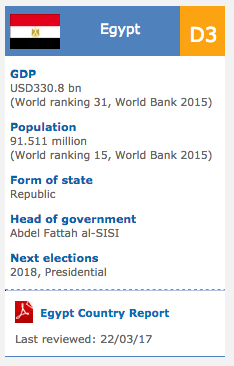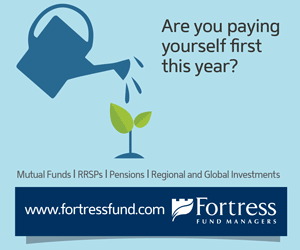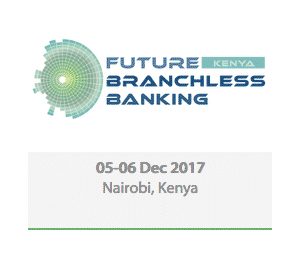European Union: Gunnar Wiegand, Managing Director Asia And Pacific At EEAS
2016/03/20

EUAC: Welcome to the new position. What were your first thoughts on being appointed as MD for Asia?
GW: I was delighted to be moving to a region which is characterised by its dynamic growth, its diversity and home to four of the EU’s strategic partners. I travelled frequently to Asia when I was spokesman for Commissioner Chris Patten so I am very pleased to reconnect with Asia.
EUAC: Why does Asia matter to Europe?
GW: As HR/VP Mogherini often says security is global in nature, so Asia’s role in tackling global challenges like climate change, illegal migration, piracy, cyber threats, radicalisation, terrorism, will significantly directly affect our capacity to find effective global responses. More generally Europe and Asia have a strong, mutual interest in addressing the many challenges between our two continents in the Horn of Africa, the broader Middle East, Afghanistan/Pakistan. Asia also has a huge rising middle class that offers not just economic opportunities but also the prospect of greater alignment of political/social goals and aspirations. Europe needs to be part of building the new Asia, based on our commitment to democracy, human rights and the rule of law.
EUAC: What are the priorities this year?
GW: First, to work on a new EU strategy for China. Second, to ensure a successful outcome of the Afghanistan conference which will be held in Brussels in early October. Third, to support the democratic transition in Myanmar. Fourth, to maintain and deepen relations with our strategic partners (India, China, Japan and Korea) and to upgrade relations with ASEAN to a strategic level. And not to forget to organise a successful ASEM summit in July in Ulaanbaatar, Mongolia.
EUAC: Will this not be a difficult year for EU-China relations because of differences over MES?
GW: China is an important partner for the EU in many areas, not just trade and economics. The decision on MES will be taken later this year after DG Trade has made its impact assessment. In the meantime we need to make progress on the bilateral investment treaty as this will offer more predictability to investors on both sides. We are also working with China on issues such as Iran and Syria as well as climate change and migration. As regards a new EU strategy towards China it is important that we define our interests and ensure that all 28 member states row in the same direction.
EUAC: Prime Minister Modi will be visiting Brussels at the end of the month. What do you expect from the visit?
GW: The visit is important in itself as we have not held a summit for the past three years. There is a broad agenda for EU-India cooperation ranging from the FTA negotiations to cooperation on global issues such as climate change, counterrorism and migration to regional issues such as maritime security.
EUAC: What will be the next steps for EU-ASEAN relations?
GW: Following the launch of the ASEAN Economic Community on 1 January we want to increase our technical assistance as ‘partners in integration.’ We also want to deepen the dialogue on maritime security, border management, disaster relief and crisis management.
EUAC: Should we be working with the US on some issues in Asia?
GW: To a large extent we share similar goals: security, open markets, rule of law, human rights. But we have different histories and footprints as regards Asia. We should thus be open to cooperation when it brings advantages to all parties but go our own ways when it suits our interests. As the High Rep said ‘the EU is not an Asian power but an Asian partner.’ This is why we would like to be involved in all regional initiatives including the East Asia Summit.
EUAC: What do you think of OBOR?
GW: The EU has reacted positively to this initiative just as it has to the launch of the AIIB. Anything we can do to improve connectivity between Europe and Asia should be welcomed.
EUAC: Any concerns about developments in the South China Sea?
GW: The EU position is very clear. We do not take a position on specific claims but we do support the peaceful resolution of disputes based on international law. We are concerned by any unilateral actions such as large scale land reclamations and militarisation of islands which increase tensions. The EU, with its track record in confidence building measures, maybe has something to offer in how to resolve competing sovereignty claims.
- Related Articles

Climate change laws around the world
2017/05/14 There has been a 20-fold increase in the number of global climate change laws since 1997, according to the most comprehensive database of relevant policy and legislation. The database, produced by the Grantham Research Institute on Climate Change and the Environment and the Sabin Center on Climate Change Law, includes more than 1,200 relevant policies across 164 countries, which account for 95% of global greenhouse gas emissions.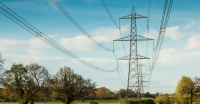
Brexit negotiations should treat energy as ‘special case’
2017/05/14 There are strong practical reasons why the UK and EU should treat energy as a appropriate case during Brexit negotiations, argues a new statement. The statement, jointly authored by Chatham Home, the University of Exeter and the UK Energy Research Centre (UKERC), says finding common ground on energy during the Brexit negotiations would benefit both the UK and remaining EU27, while compromise may be relatively easier to achieve than for other areas.
You’ll Only Understand Trump and Brexit If You Understand the Failure of Globalization
2016/11/23 Trump Trump made rejection of globalization a centerpiece of his campaign. In his July 21st acceptance speech as the Republican nominee, he said: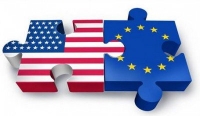
Towards NAFTA-EU Economic Integration?
2016/11/23 The ratification of the CETA agreement is imminent, with far-reaching economic and social implications. France’s Prime Minister Manuel Valls is currently in Canada for meetings with Prime Minister Justin Trudeau. CETA is the object of protests in both Canada and the EU. It was also the object of a legal procedure in Germany. The logic of the agreement must be understood. It constitutes the first step towards the integration of NAFTA and the EU. This integration would create an North Atlantic political entity broadly coinciding with NATO.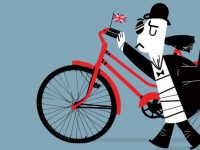
If Prime Minister May is serious in her pledge that ‘Brexit means Brexit’, she needs to be sensitive to the risk that taking too long to start the formal process will anger the 27 spurned countries
2016/08/25 It’s been two months since Britain voted to quit the European Union (EU). Since again, the silence on how the divorce proceedings will be conducted has been deafening. It’s an impasse that helps neither side and, once Europe’s August holiday season is over and the region’s politicians are back at their desks, there’s a risk that things could turn nasty.
- European Union News
-
- FRANCE: Aluminium-Lithium Alloys Fight Back
- AFGHANISTAN: UNWTO: International tourism – strongest half-year results since 2010
- ALBANIA: US LNG exports make European market more competitive
- AZERBAIJAN: Azerbaijan, EU set to continue talks on common aviation area deal
- EUROPEAN UNION: UK seeks to 'align' with EU on data protection rules
- EUROPEAN UNION: ECB Rate-setters Raise Concern Over Euro Strength
- Trending Articles
-
- SOUTH AFRICA: Nigeria and South Africa emerge from recession
- BAHRAIN: Bahrain issues new rules to encourage fintech growth
- ARUBA: Director of Tourism Turks and Caicos after Irma: Tourism, visitors, hotels current status
- ANGOLA: Angola: Elections / 2017 - Provisional Data Point Out Qualified Majority for MPLA
- WORLD: How fair is our food? Big companies take reins on sourcing schemes
- CHINA: Russian firm seals energy exploration deal to drill South African shelf



